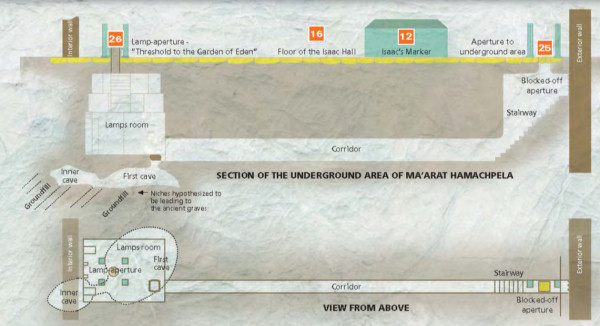Gen 50:13 מַכְפֵּלָה as partic. >τὸ σπήλαιον τὸ διπλοῦν
Posted: July 31st, 2016, 2:54 pm
I'm not familiar enough with Hebrew to go any further with this question about this variation between the MT and the LXX Vorlage. The specific things I find myself wondering about are these:
Seeing as this is not translated as δεδιπλωμένον "doubled" in the LXX, but as διπλοῦν "double", let me ask a general question: Are Hebrew participles usually rendered as Greek participles? In other words, if this διπλοῦν is in fact a rendering of of the Hebrew participial form, is the choice of a Greek adjective note-worthy or commonplace?
Has it been put forward concerning this phrase that the LXX rendering is more likely due to a specific ignorance in geography, or to an avoidance of mentioning a place following the Judea - Sameria schism.
Is it reasonable to assume that the שְׂדֵ֣ה of the MT was not in the LXX Vorlage?
Genesis 50:13 (MT) wrote:וַיִּשְׂא֨וּ אֹת֤וֹ בָנָיו֙ אַ֣רְצָה כְּנַ֔עַן וַיִּקְבְּר֣וּ אֹת֔וֹ בִּמְעָרַ֖ת שְׂדֵ֣ה הַמַּכְפֵּלָ֑ה אֲשֶׁ֣ר קָנָה֩ אַבְרָהָ֨ם אֶת־ הַשָּׂדֶ֜ה לַאֲחֻזַּת־ קֶ֗בֶר מֵאֵ֛ת עֶפְרֹ֥ן הַחִתִּ֖י עַל־ פְּנֵ֥י מַמְרֵֽא׃
My general question is whether the LXX phrase τὸ σπήλαιον τὸ διπλοῦν "the double cave", a possible and valid rendering of the Hebrew מַכְפֵּלָה (if the pointing were different)? What would the correct form of the feminine particple (perhaps מוכפלה) from כָּפַל "double" (including the pointing) need to be to have the meaning "doubled"? Would the addition of the waw in the participial form, and its absence in the מַכְפֵּלָה be enough to let us understand what might have been going through the LXX translators' mind while reading of the text - is the spelling of participles flexible in this (waw) regard?Genesis 50:13 (LXX) wrote:καὶ ἀνέλαβον αὐτὸν οἱ υἱοὶ αὐτοῦ εἰς γῆν Χαναὰν καὶ ἔθαψαν αὐτὸν εἰς τὸ σπήλαιον τὸ διπλοῦν, ὃ ἐκτήσατο ῾Αβραὰμ τὸ σπήλαιον ἐν κτήσει μνημείου παρὰ ᾿Εφρὼν τοῦ Χετταίου, κατέναντι Μαμβρῆ.
Seeing as this is not translated as δεδιπλωμένον "doubled" in the LXX, but as διπλοῦν "double", let me ask a general question: Are Hebrew participles usually rendered as Greek participles? In other words, if this διπλοῦν is in fact a rendering of of the Hebrew participial form, is the choice of a Greek adjective note-worthy or commonplace?
Has it been put forward concerning this phrase that the LXX rendering is more likely due to a specific ignorance in geography, or to an avoidance of mentioning a place following the Judea - Sameria schism.
Is it reasonable to assume that the שְׂדֵ֣ה of the MT was not in the LXX Vorlage?

